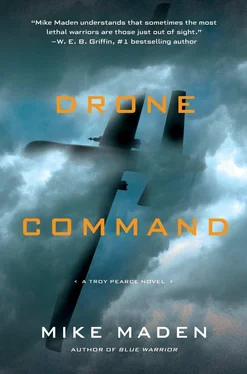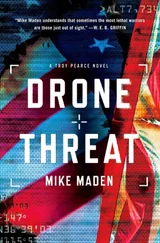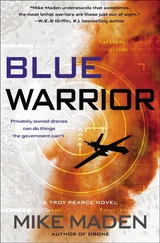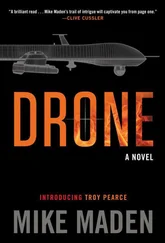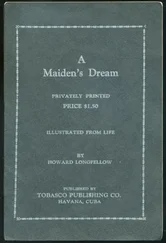Wheeler countered. “I say we make a strong public statement, explicitly condemning the Chinese actions yesterday. Pledge our support to the Japanese.”
“Words won’t be enough for the Japanese or our other allies,” the marine general said. “And the Chinese might just laugh us out of the room. This whole conflict is about naval presence. Force.”
The chairman was as grim as a hanging judge. “The Vietnamese have a saying, ‘You can’t put out a nearby fire from a distant well.’ If we don’t show up in force in the area immediately, we’ll shake the confidence of all our allies in the Pacific. Even NATO. Hell, maybe the whole world.”
The room quieted as everyone processed the implications of the chairman’s statement.
Lane was lost in his own thoughts. He was the commander in chief of the most powerful military in all of human history. He wasn’t nearly as qualified as any of the men in this room on defense and security matters, and yet the Constitution vested him, the president, with the authority to wage war. If the chairman was right, maybe a global war really was possible. Sounded crazy to even think that. But Lane had read his history, and few heads of state in Europe in either 1914 or 1939 were prepared to think about the unthinkable before it happened. Two global wars resulted.
“And that’s why you want a show of force as soon as possible?” Lane said.
“Yes, sir,” the chairman said.
“And what are the options?” Lane asked.
“We’re divided, Mr. President. I believe sending the George Washington carrier battle group to the area is the wisest course of action. The George Washington is based in Yokosuka, Japan.”
Lane saw the marine corps and air force chiefs nodding in agreement.
“But the navy has its reservations,” the chairman added. He turned to the chief of naval operations.
“The Chinese have pursued an aggressive A2AD antiaccess/area denial capability. We believe they’ve achieved a significant breakthrough in their antiship missile technologies. The DF-21D and YJ-12 missiles are proven and reliable conventional antiship systems capable of taking out an aircraft carrier. However, we have our own antimissile defense systems in place that we believe can deal with those threats — provided the Chinese don’t overwhelm us with sheer numbers.”
“Is that likely?” Lane asked.
“Not at the moment, especially in the northern reaches we’re talking about. Down south toward Taiwan, well, that’s a different matter.”
“But the admiral has other concerns,” Shafer said.
“Our biggest concern is the Chinese deployment of the Wu-14, a hypersonic, maneuverable, conventional missile warhead. Not only is it fully capable of taking out an aircraft carrier, but it travels at such a high rate of speed we have no means to defend against it at the present time. My concern is that if you send the George Washington into harm’s way we might just lose it. That would send an even stronger message to our allies than doing nothing at all.”
“Of course, the DIA doesn’t believe the Wu-14 is actually operational,” the marine commandant said.
“The CIA hasn’t confirmed it, either,” Shafer added. “Nor have any other national intelligence agencies.”
Lane sighed. “Why the hell not?” It wasn’t really a question. Lane had heard all the excuses before in his PDBs. He also agreed that China was America’s most challenging strategic threat and the Wu-14—if it actually existed — the most dangerous conventional weapon in their arsenal.
“We don’t have HUMINT near it, and their cyberdefenses are impenetrable,” Shafer said.
The air force general wasn’t through carpet bombing the navy’s argument. “It’s just not feasible that the Chinese have it, at least not an operational version. We’ve been trying to crack the HGV nut since the ’80s and still can’t make the damn thing work. The physics behind it are just too hard to engineer around.”
“That doesn’t mean the Chinese haven’t figured it out,” the admiral said. “They say they have. They’ve even leaked the videos of their tests.”
The marine general scoffed. “Pure propaganda. They’re at least five years away. Think about it. What a coup for their intelligence service if they can make us believe they have the Wu-14 when they actually don’t? They could scare us out of the Pacific for the cost of a porno movie.”
“I’m not willing to bet the lives of five thousand sailors on your theory,” the admiral snapped. He turned to Lane. “Are you?”
“What about a preemptive strike against their DF-21 platforms?” the army general asked. “Seems like the easiest way to defeat the Wu-14 system.”
“But those are mobile missiles,” the air force chief said. “Besides, the DF-21s have almost twice the combat range of our F-35Cs. You’ll need to use longer-range assets like sub-launched cruise missiles to effect the strike.”
“The Chi-coms would start crapping golf balls if we lit up their radar screens with cruise missiles. They’d think we were launching a preemptive nuclear strike,” Garza said.
“Not to mention that a preemptive strike without just cause is illegal under international law,” Wheeler said.
“And that would start a war, which, according to our Constitution, you explicitly don’t have the authority to do,” Garza said. “Unless you consider the Chinese an imminent threat to the United States.”
“Which it isn’t,” Wheeler added. “Technically, it’s Japan that’s in imminent danger, not us.”
“There are other options,” the marine commandant said. “The Wu-14 relies on satellite systems for guidance and navigation. We could launch ASAT missiles and take out their satellites.”
“And start a space war with the Chinese, who would take out our satellites,” the air force general said, shaking his head. “We’re far more dependent on space assets than they are.”
“Or disrupt the kill chain,” the army general said. “Disrupt the links between the satellites and the missile.”
“How?” Lane asked.
“Cripple their command and control systems through conventional or cyber attacks.”
“And you’re confident we can do that?” Lane asked.
“Technically, yes, I believe it’s entirely possible.”
“And you’re confident enough that you’re willing to risk one of our carriers and the lives of the sailors on board?”
The army general hesitated, weighing the evidence in his mind. “Frankly, no. The Chinese would know these were points of vulnerability and would have probably prepared defenses against them in advance. We wouldn’t know if our efforts were successful until after they launched the vehicle.”
“Not acceptable,” the admiral said.
Lane took a sip of coffee, processing the conversation. He leaned toward the chairman. “So what you’re telling me is that the best way to prevent a war with China is to threaten war with China?”
“Yes.” The irony wasn’t lost on the chairman or anyone else in the room.
Lane turned back to the admiral. “But the only way we can safely deploy the George Washington is to first launch a preemptive strike against the Wu-14?”
“That’s my assessment, sir.”
“If you can find it,” the army general added.
“So we have to start a war to prevent it,” Garza said, shaking his head. “Or roll the dice and hope the Chinese are just bluffing.”
Lane turned back to Shafer. “And we’re talking about provoking a regime that’s already proven itself recklessly aggressive?”
The secretary of defense nodded grimly.
“And yet, backing down or doing nothing would only embolden them in their recklessness? Threaten our existing alliances?”
Читать дальше
